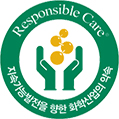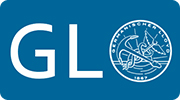COMPANY
Affiliates
The Kumho Petrochemical Group produces world-class petrochemical products
and comprehensive chemical solutions.
Kumho Petrochemical
- Date established
- December 28, 1970
- Areas of business
- Petrochemicals (synthetic rubber, synthetic resins, precision chemicals, electronic materials, Nano-carbon, energy materials, building materials, etc.)
- Telephone
- +82-2-6961-1114
- Fax
- +82-2-6961-1449
- Web site
- http://www.kkpc.com
- Main location
- Floors 10 through 14, Signature Tower (East Wing), 100 Cheonggyecheon-ro, Jung-gu, Seoul
First established in 1970, Kumho Petrochemical has grown into the world’s largest producer of synthetic rubber, and now produces a wide range of petrochemicals, including synthetic resins, precision chemicals, electronic materials, nano carbon, energy materials, and building materials. Having played a leading role over the last four decades in Korea’s industrialization, the company now strives to become a global leader of petrochemicals, capable of developing and producing cutting-edge and innovative materials.
Kumho Mitsui Chemical
- Date established
- September 11, 1989
- Areas of business
- Chemical products (MDI) manufacturing
- Telephone
- +82-2-6961-1114
- Fax
- +82-2-6961-3779
- Web site
- http://www.kmci.co.kr
- Main location
- Floor 11, Signature Tower (East Wing), 100 Cheonggyecheon-ro, Jung-gu, Seoul, Korea
Kumho Mitsui Chemicals, a joint venture company established by Kumho Petrochemical and Mitsui Chemicals, manufactures MDI, a core material of polyurethane that is used to manufacture automotive interior components, refrigerators, building materials, and synthetic fibers. To cope with the continuous development of appliances and the automobile industries in Asia, we are always creating innovative technologies and currently expanding our manufacturing facilities. We are the largest domestic supplier with a total of 200,000 tons in 2013.
Kumho T&L
- Date established
- September 22, 2009
- Areas of business
- Cargo transportation, shipping, warehousing and related services
- Telephone
- +82-2-6961-1114
- Fax
- +82-2-6961-3529
- Web site
- http://www.ktnl.co.kr
- Main location
- Floor 8, Signature Tower (East Wing), 100 Cheonggyecheon-ro, Jung-gu, Seoul, Korea
Kumho T&L helps Kumho Petrochemical’s Co-Generation Plant and other businesses in the Yeosu National Industrial Cluster minimize the cost of having their goods shipped and handled by specializing in the shipping, handling, transporting, and warehousing of bituminous coals, a major raw material in demand in the cluster. As the first storage house in Korea to have adopted a silo-style system, the company minimizes problems associated with outdoor storage (including dust, water leakages, noises, and proneness to inflammation), while maximizing fuel efficiency. The company plans to expand its business in the future to include forwarding and marine shipping as well.
Kumho Polychem
- Date established
- June 5, 1985
- Areas of business
- Synthetic rubber (EPDM)
- Telephone
- +82-2-6961-1114
- Fax
- +82-2-6961-3811
- Web site
- http://www.polychem.co.kr
- Main location
- Floor 9, Signature Tower (East Wing), 100 Cheonggyecheon-ro, Jung-gu, Seoul, Korea
A joint venture company of Kumho Petrochemical and JSR of Japan, Kumho Polychem has revolutionized the automobile manufacturing industry in Korea by localizing the production of EPDM, a synthetic rubber that is a crucial ingredient of automotive parts and other industrial goods, for the first time in Korea. Now, as Asia’s largest and the world’s third-largest producer of EPDM (with a production capacity of 160,000 tons a year), the company continues to thrive thanks to the economic growth of Asian countries, the increasing offshore production of Korean automakers worldwide, and the globalization of automotive manufacturing companies.
Kumho Trading
- Date established
- September 29, 2009
- Areas of business
- Overseas trading, road maintenance, asset management, insurance, advertising
- Telephone
- +82-2-6961-1114
- Fax
- +82-2-6961-3399
- Web site
- http://www.kumhotrading.com
- Main location
- Floor 4, Signature Tower (East Wing), 100 Cheonggyecheon-ro, Jung-gu, Seoul, Korea
Established to steer the group-wide efforts for developing new markets and businesses and also to participate in a wide range of trading and related activities, Kumho Trading provides trade insurances, supports MRO projects, and also conducts road management and maintenance businesses. The company’s widening portfolio today includes: trading foodstuff and grain resources to and from South–Central America and Europe; developing resource recycling businesses; importing raw materials into Korea; and managing the Gyeongsu National Expressway (including the Baegyang Tunnel in Busan) and the Seohaean National Expressway II.
Korea Energy Power Plant
- Date established
- June 1, 2012
- Areas of business
- Electricity and solar energy generation
- Telephone
- +82-2-6961-1114
- Fax
- +82-2-6961-1419
- Web site
- -
- Main location
- 8+82-2 Yucheon-ri, Sanam-myeon, Sacheon, Gyeongsangnam-do
Korea Energy Power Plant is a special-purpose corporation established to generate solar energy. Its main concerns are the installation and distribution of rooftop solar energy facilities. The solar energy panels installed on the rooftops of the Korea Aerospace Industries’ factory and warehouse form the largest solar energy facility for a single region (5.32 MWh) in Korea. The plant strives to develop and distribute newer and better models of solar energy distribution.



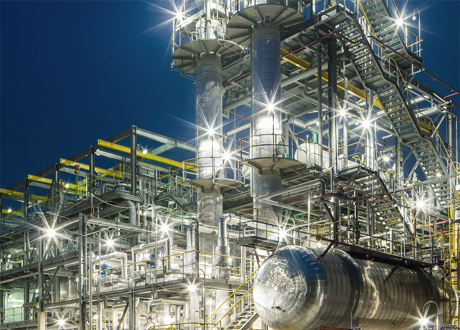 Kumho Petrochemical
Kumho Petrochemical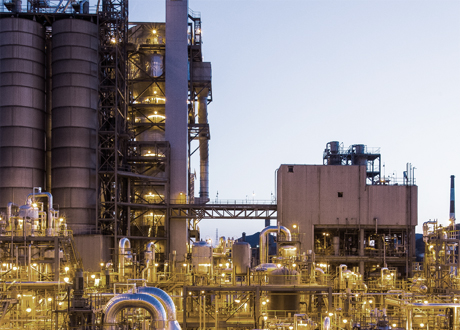 Kumho Mitsui Chemical
Kumho Mitsui Chemical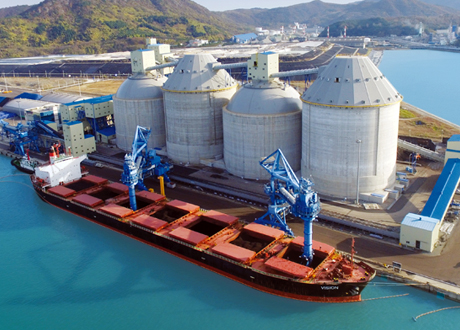 Kumho T&L
Kumho T&L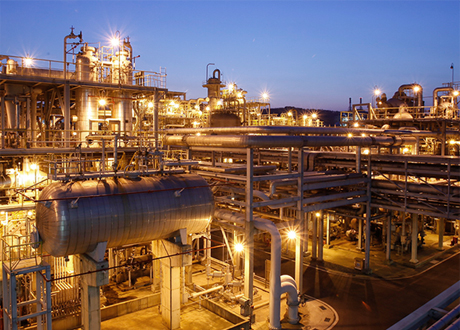 Kumho Polychem
Kumho Polychem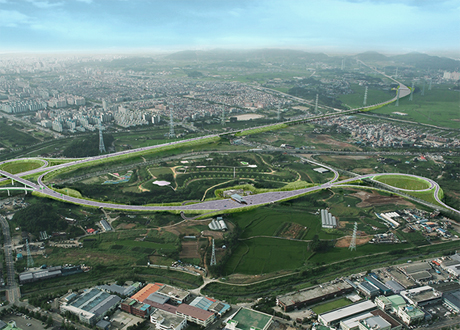 Kumho Trading
Kumho Trading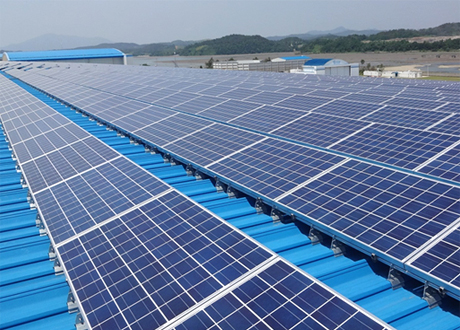 Korea Energy Power Plant
Korea Energy Power Plant









